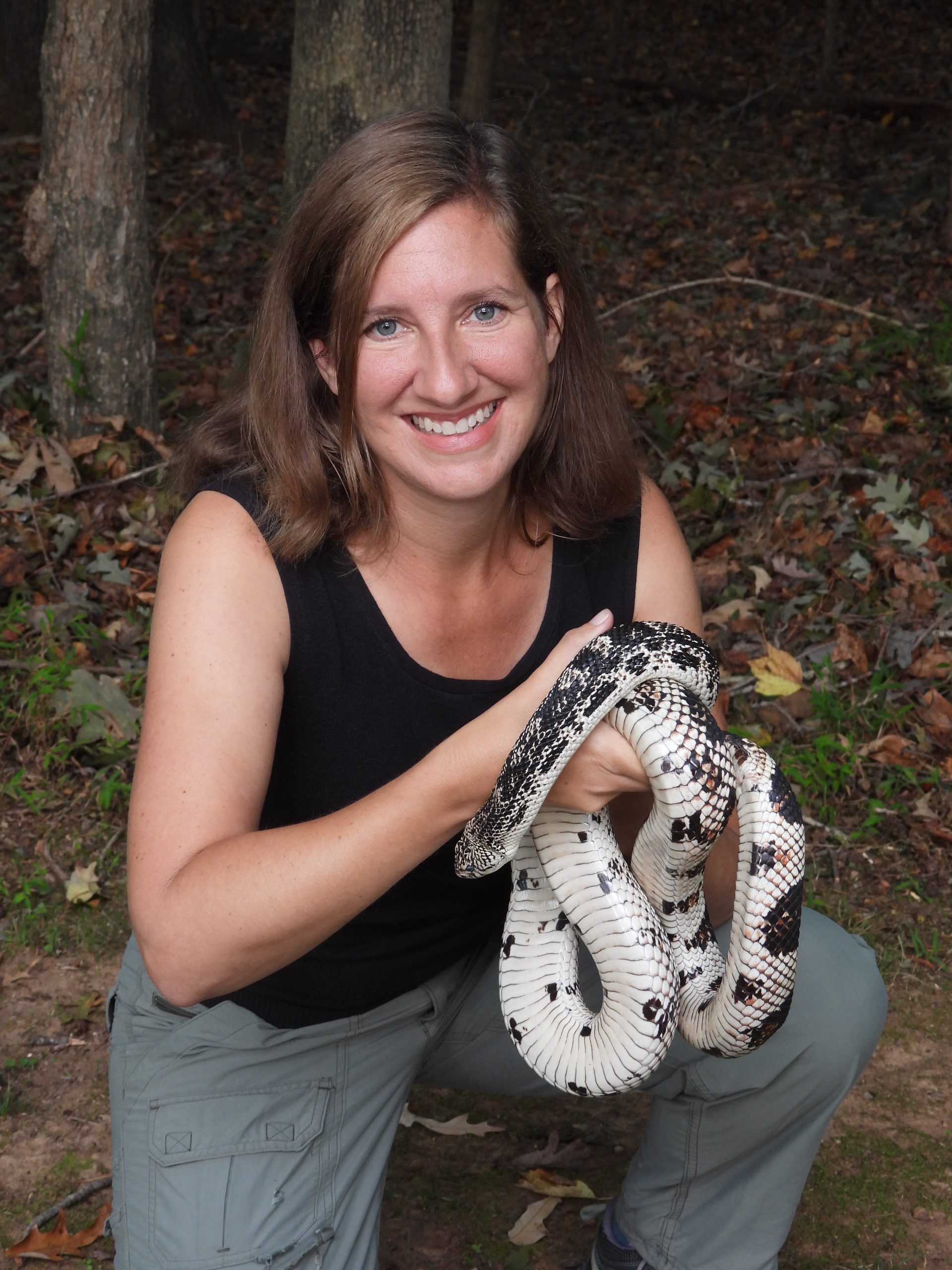I am a dedicated naturalist, ecologist, and environmental educator with a passion for writing. As a Senior Lecturer in the Nicholas School of the Environment at Duke University, my courses emphasize natural history and environmental education & communication. I am also the Associate Dean of Diversity, Equity, and Inclusion for the Nicholas School of the Environment and the former Director of NSOE Undergraduate Diversity, Equity, and Inclusion (check out “How to Create a Culturally Inclusive Syllabus & Course“), Director of the Environmental Science Summer Program at Duke, and founding and former Director of the NSOE Communications Studio.
Check out my new book, Saving Snakes: Snakes and the Evolution of a Field Naturalist, published in January 2023. Looking for discussion questions or a video introduction to the book? Check out Duke Summer Reads 2023.
Education. My ecological training began before college at The Grove, a nature preserve in northern Illinois. There, I worked at as a naturalist and educator. I received my B.S. in Natural Resources and Environmental Sciences from the University of Illinois – Urbana, I graduating summa cum laude after three years of study. Before starting my doctoral studies, I served as an AmeriCorps volunteer in Knoxville, TN working at the interface of water quality policy and science. I also volunteered at The Sea Turtle Hospital in Marathon, FL.
I completed my doctoral studies in Duke University’s Program in Ecology, one of the top three programs in the nation (see National Research Council), and specialized in statistics. My dissertation research explored the multi-scale distributions and conservation status of snakes in the North American tallgrass prairie and integrated the quantitatively intense methods of landscape ecology with the more traditional field-based approach of conservation biology (see 2008 paper).
Academic Positions. In 2011, I joined the Thompson Writing Program (TWP) at Duke University as a Lecturing Fellow. The TWP provided intensive training in pedagogical methods, allowing me to develop courses that empowered students to complete real-world research and service-learning projects. These courses included Endangered Ecosystems of North Carolina, From Woods to Words, and European Environmentalism. I also used the TWP’s unique interdisciplinary environment to develop a new research program focused on environmental education.
In 2013, I was invited to join the Faculty of the Nicholas School of the Environment, where I teach courses in natural history (e.g., Forest Measurements, Wildlife Surveys) and communication (e.g., Writing for Environmental Professionals). This particular amalgamation of subjects follows a long tradition of naturalists, including Aldo Leopold and E. O. Wilson, that combine science and communication in their work. In 2021, I was promoted to my current position as Senior Lecturer in Environmental Science and Policy.
I regularly conduct biotic surveys of the Duke Forest and annually survey bird-window collisions on Duke’s campus (see C.V. for publications). I also research and write about environmental education, particularly in non-formal settings (e.g., nature centers, e.g., Cagle 2013), and the development of teaching practices among the environmentally dedicated.
Environmental Education & Service. In addition, I am committed to environmental education, both locally and globally. In 2021, I won Environmental Educator of the Year from the North Carolina Environmental Educators. In 2007, I completed my North Carolina Environmental Education Certification. In 2012, I completed my Native Plant Studies certificate at the North Carolina Botanical Garden, where I currently teach continuing education courses. In 2013, I became a National Association for Interpretation Certified Interpretive Trainer. In 2016, I completed my Kamana I Naturalist Certificate from the Wilderness Awareness School. I also explored the internal dimensions of human connection to the natural world in the Inner Life of the Child in Nature program offered by the Center for Education, Imagination, and the Natural World. I also had the opportunity to explore the current climate in K-12 education as a North Carolina Science Leadership Fellow (2012-2014).
I’ve been involved in a number of community projects over the years, including building a footbridge at Occoneechee Mountain State Park and teaching biology and English in a small town in Tanzania. For 10 years, I also wrote a bi-monthly natural history newsletter for the Ellerbe Creek Watershed Association and I have led nature walks for the organization. In addition, I’ve taught courses, advised certificate students in the Native Plant certificate program, and hosted a North Carolina Natural Communities exhibit with Duke University freshmen at the North Carolina Botanical Garden.
Finally, I have a deep interest in foreign culture and language that compelled me to study a number of languages and travel to all 50 states and over 45 countries. On the weekends, I love spending time in nature, writing and reading, visiting historical sites, and exploring local museums with my husband and remarkable son.

